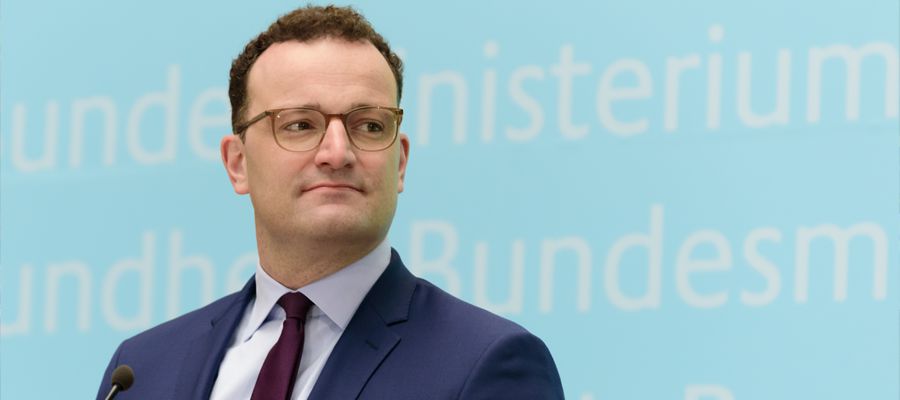Pfizer costs $14.70 per jab while Astra Zeneca is $2.15
- Wednesday, April 28, 2021
 The likelihood of an early Eurozone recovery from the Covid crisis was put into perspective by many of Germany’s top economic institutes as they cut their forecast for German GDP growth this year mainly due to third wave lockdowns and a delayed vaccination roll out.
The likelihood of an early Eurozone recovery from the Covid crisis was put into perspective by many of Germany’s top economic institutes as they cut their forecast for German GDP growth this year mainly due to third wave lockdowns and a delayed vaccination roll out.
Europe has not been efficient in its vaccination programme with only 26% of Europeans being offered a jab as of 26th April as compared to 65% in the UK. Germany’s Health Minister Jens Spahn has warned that the pandemic is not under control and is threatening the German health system. This third wave will delay the re-opening of the German economy and will risk longer economic scarring.
The decentralised German health system praised for its early efficiency when dealing with the first lockdown and the treatment of Germany’s ill, has since turned into a slow moving and inefficient administration without central records or clear national planning for the roll out of its vaccination programme.
European virologists are suggesting that politicians need to be careful about any early relaxation of lockdowns with a third wave still impacting much of Europe. The undermining of the Astra Zeneca vaccine has damaged vaccine confidence on top of what was a badly managed procurement process. This is having a far longer impact on the people and businesses of Europe than should have been expected. This has been a costly error by the EU for not having been better prepared.
Despite the continent being hit by a third wave and both the Astra Zeneca and Johnson and Johnson vaccines having concerns raised over the risk of rare blood clots being a side effect, there are signs that the European roll out is picking up a pace. The EU has administered 100m doses by mid-April to 26% of the population with a stated target of inoculating 50% of adults by the end of July. Despite the disagreements over the supply of the Astra Zeneca vaccine, the EU has confirmed the supply of 250m doses of Pfizer in Q2. The daily vaccination rate in Germany is now ahead of that in the UK because local GPs have been enlisted into the roll out.
France is the most vaccine sceptical country in Europe. The World Economic Forum has found only 40% of French adults wanted a jab as compared to 77% in the UK. While these figures will rise with evidence of vaccine success, as it has in the UK, any national resistance to the roll out will impact herd immunity and allow Covid to circulate.
The EU has also announced it has signed a new deal with Pfizer to deliver 1.8bn doses of the BioNTech vaccine. This order will be enough to inoculate 450m EU citizens for the next 2 years. This deal has however sparked concern that the poorer countries in the world are being priced out of the vaccine. The Pfizer vaccine is difficult to store and dispense and is more expensive. Astra Zeneca and Johnson & Johnson have committed to not making a profit from the pandemic while Moderna and Pfizer have not. Based upon published costs the order of 1.8bn doses could cost the EU US$14.70 per jab as compared to US$2.15 for the Oxford Astra Zeneca jab. That is a very expensive decision.
The fiscal stimulus plan in Europe will provide a positive but more modest boost to growth than that on offer in the US and UK. The EU has committed in invest by way of grants and loans €750bn or 8% of GDP with payments starting in Q3 2021. This time scale may be put back due to the on-going legal challenge from the German Constitutional Court that the EU Recovery Fund is in breach of EU treaties and therefore violates the German Constitution. Any ruling in favour of the Court will restrict the European Commission from being able to independently raise capital in the future. The longer-term problems for the EU remain the thorny issue of debt union across the eurozone countries.
Analysts are however giving a more positive forecast for European growth over the next two years due to the acceleration in vaccine roll out supported by the €750bn EU Recovery Fund being implemented later this year and an expected €500m of unspent household savings being released into the retail market. The fiscal support on offer from the much EU heralded Recovery Fund is still far less than that required but analysts are suggesting a 3.6% growth for the eurozone in 2021.
The traditional value style of European stocks saw the Euro Stoxx 600 outperform may other leading indices with growth of 9.5% year to date to 26th April.

Chris Davies
Chartered Financial AdviserChris is a Chartered Independent Financial Adviser and leads the investment team.
About Estate Capital
Financial Services
Our Contacts
7 Uplands Crescent,
Swansea, South Wales,
SA2 0PA.
Tel: 01792 477763
